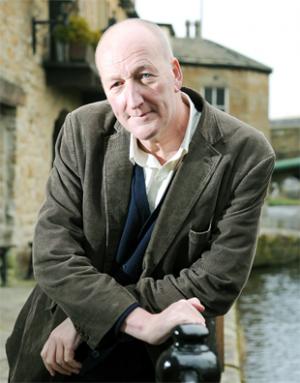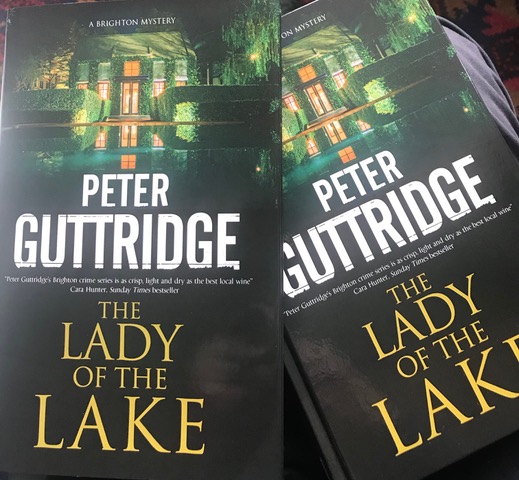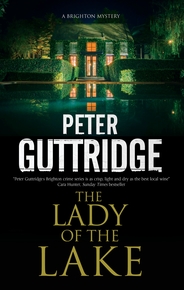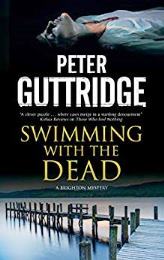
I’ve long been obsessed
with the Arthurian legends. The gaudy Technicolor of Robert Taylor and Ava
Gardner’s 1953 film Knights of The Round
Table captivated me when I saw it as a kid on our first colour telly in the
Sixties. I did a special project on the legends when I was a history student at
university. I read Malory and Chretien de Troyes and Wolfram Von Eschenbach and
Geoffrey of Monmouth and T H White’s The
Once and Future King (which is a bloody brilliant adult novel, never mind
the cartoon version of the first part, The
Sword In The Stone).
I visited many ‘real’
sites, including the dense forest of Brocielande in Brittany where the ‘real’
Merlin was reputed to have lived and where, by accident, I pissed on an adder in
the undergrowth and made a run for the car park convinced it was chasing me. I taught
a course on Arthur and the Symbolism of the Grail when I first moved to London
in the mid-seventies for a hippy outfit in Shepherds Bush called Gentle Ghost –
I also did house clearances and removals for them for cash-in-hand but that’s another
story.
In my twenties I wrote a
deservedly unpublished literary novel, The
Crowned Man Without Eyes, which was a modern retelling of the Arthur,
Guinevere, Lancelot triangle with a bonkers Mordred thrown in for good measure.
When I stumbled into film journalism I interviewed one of my favourite
directors, John Boorman. He revealed his own obsession with the Arthurian legends.
(He was prepping his film Excalibur at
the time.) He pointed out that in his fantastic existential thriller Point Blank there was a Merlin figure. That
the last shot of Deliverance, when the
arm of a murdered man comes out of the water of a flooded valley, was a sly
reference to the Lady of The Lake’s hand coming out of the water to catch
Excalibur when it is thrown in there.
My fourth comic crime
novel, The Once and Future Con,
imagined that Arthur and Guinevere’s shared grave had been found in the West Country
and a theme park was going to be built around it.
And so, thirty years
later I’m camping beside a placid tarn in the Lake District and at dawn I’m
watching carp leap out the water to nosh insects for their breakfast and I’m
thinking about the Lady of the Lake. And I start writing.
The eponymous Lady of The
Lake in the latest novel in my Brighton series is a reclusive ex-Hollywood film
star who gets embroiled with my regular cast of characters in a story involving
county line drug trafficking, human trafficking, a despised local landowner
and, of course, several murders.
Her name is Nimue Grace,
Nimue being one of the many names of the Lady of the Lake in the Arthurian
legends. And she has a lake where the first murder victim is found. For this
novel my regular cast of characters decamp from Brighton over the South Downs
to Plumpton, which really exists, and Nimue’s lake and Big House, which are
made-up.
My career as a film
journalist came in very useful for collecting unlikely and sometimes frankly
unbelievable Hollywood film tales. I used some of them in my debut novel, No Laughing Matter, but there were a few
left over that I use in this novel, and some much more recently heard, for
Nimue’s back story.
Nimue Grace is not based
on a particular film actress, rather she’s an imagined composite of famous
recluses from Garbo and Bardot to Bridget Fonda (whatever happened to her?) and
Sean Young (ditto). Her grin though is all Julie Christie, the Sixties and
early Seventies superstar from such films as Darling, Far From The Madding
Crowd and Dr Zhivago.
I met Christie just the
once, in the 80s, when she was doing some classic play on radio and I was
freelancing for the Radio Times. Though
not a recluse, she did live on a farm in a remote part of Wales, shunned the
showbiz life and, usually, the press. Her acting roles by then were, by her
choice, few and far between.
She’d agreed to do just
one interview on her train heading back to Wales and she chose me. (Shucks.) There
were bets in the Radio Times office
as to which stop on the journey she’d kick me off the train as she tired of the
interview. The preponderance of opinion was that it would be Watford, some 20
minutes outside London. In fact I lasted to Birmingham. We actually bumped into
each other at the ticket office in London and did the interview in the dining
car (remember those?). She was utterly delightful, shy and hesitant but strong
in her opinions about the environment etc.
When I got off I stood on
the platform to see her depart. As the train set off she gave me a vigorous
wave and this huge, beautiful, irresistible grin that pretty much made my legs
buckle. Thirty years on I can still see it though now it’s pasted on my
character Nimue Grace’s lovely face.
As for my regular cast of
characters in the Brighton series – DI Sarah Gilchrist, DS Bellamy Heap, police
commissioner Bob Watts and his ex-SAS buddy Jimmy Tingley – in Lady of The Lake they are up to their
usual acts of derring-do and good deeds…well, not necessarily so good in
Jimmy’s case. And dealing with their own emotional problems, of course. Plus
there’s a sub-plot bubbling under that suddenly takes on added significance at
the end. Oh, and ostriches. And llamas. Lots of llamas.
The Lady of The Lake was, relatively speaking, an enjoyable breeze to write. (The
one before, Swimming With The Dead,
started easily but became gruelling to finish for me – and possibly the reader!)
I hope Lady of The Lake is an equally
enjoyable breeze to read.


The Lady of The Lake Severn House
29 November, 2019.
It is the
7th of Peter Guttridge’s Brighton series. Swimming With The Dead, the 6th novel, was published in
April 2019.
